Seeds are an excellent source of fiber and antioxidants. Even though seeds are tiny in size, but they are packed with essential nutrients that you require on a daily basis. Seeds are also rich in antioxidants, which is why they do a good job of helping you fight against inflammation and the damage caused due to oxidative stress in the body. One of the best benefits of healthy seeds is that they reduce your risk to serious ailments. Though you may find many types of seeds in the market, there are a few healthy seeds that you must consume every day for their immense health benefits.
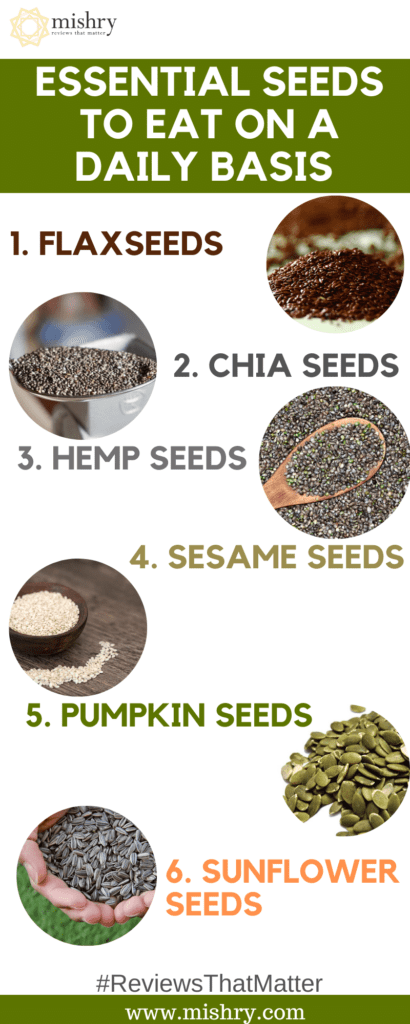
Table of Contents
Healthy Seeds To Include In Your Daily Diet
1. Flaxseeds
Also known as linseeds, flaxseeds are excellent sources of fiber and omega-3 fatty acids. It is the ALA (alpha-linolenic acid) content in flaxseeds that makes it one of the healthiest seeds for everyone. To ensure that you are able to digest these seeds easily, you can grind flax seeds and use them as a powder to flavor or temper your dishes.
The lignan polyphenol, when combined with the fiber and omega-3 fatty acids, found in flaxseeds, help to make you less prone to cardiac ailments and reduce your blood pressure, cholesterol & blood sugar levels. Studies have been conducted to know more about the benefits of flaxseeds and the results of various studies showed the following.
- Those who regularly eat flaxseeds could find a reduction in their blood cholesterol levels by around 10 millimoles per liter.
- People who ate flaxseeds every day for 12 weeks, found a visible reduction in their blood pressure levels
- Women, who eat flaxseeds regularly, are less prone to breast cancer while men, who eat these seeds daily, are less prone to prostate cancer
Flaxseeds are considered to be very healthy because they are loaded with almost all the nutrients that you need every day. When you eat about 28 grams of flaxseeds, you can get 35%, 31% and 28% of your daily recommended levels of manganese, thiamine, and magnesium, respectively. You will also get around 5 grams of protein and 8 grams of protein in just 28 grams of flaxseeds! The omega-3 and omega-6 fats that you get from this quantity of flaxseeds are around 7 grams and 2 grams, respectively.
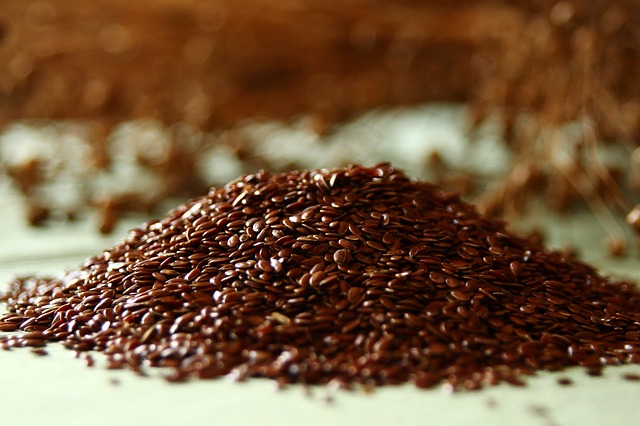
2. Chia Seeds
Since they are excellent sources of fiber, proteins, omega-3 fats, and polyphenol antioxidants, chia seeds are considered to be a powerhouse of nutrients. You have to consume them on a daily basis to witness a visible reduction in your blood sugar levels. Thanks to the nutrients found in them, chia seeds can also help your body to fight against inflammation of all types.
The major advantage of consuming chia seeds regularly is that it helps to increase the production of the polyphenol named ALA (alpha-linolenic acid) in human blood. When there is enough ALA in your blood, your body will then convert the same to important omega-3 fats such as EPA (eicosapentaenoic acid) and DHA (docosahexaenoic acid), to keep your vital organs healthy.
Chia seeds (whole & ground form) are one of the best diets you can consume if you want to reduce your blood sugar levels. Studies have proved that chia seeds, when consumed immediately after a meal, can reduce your blood sugar levels. In addition to this, these seeds also keep your heart healthy and your body satiated for a long time.
In about 28 grams of chia seeds, you will find 137 calories, about 11 grams of fiber, 4 grams of protein, 5 grams of omega-3 fats and 2 grams of omega-6 fats. Eat chia seeds every day to get close to 15% of your daily recommended levels of Thiamine and 30% each of your daily recommended levels of Magnesium and Manganese.
Related Reading:
How To Eat Chia Seeds | 11 Creative Ways
Chia Seeds And Weight Loss | 3 Effective Ways To Eat Chia Seeds
5 Side-Effects Of Chia Seeds That You Should Know About
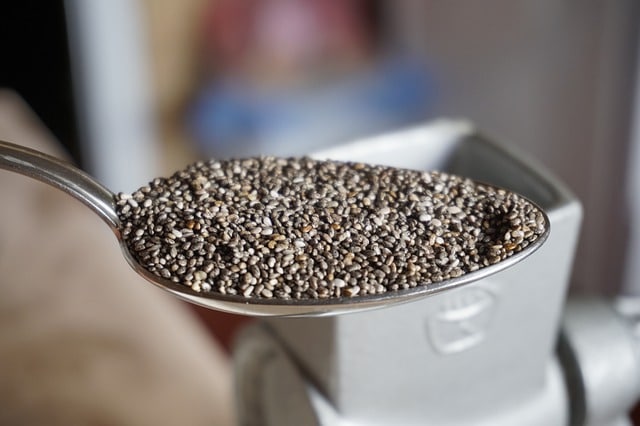
3. Hemp Seeds
Considered to be one of the best forms of plant-based proteins, hemp seeds are a rich source of amino acids. The human body is incapable of making amino acids on its own; therefore, it is important that you make these seeds a part of your regular diet plan. These seeds are also a good source of gamma-linolenic acid, which is an effective anti-inflammatory agent.
Therefore, hemp seeds are consumed in the whole or oil form to get relief from chronic pain, wounds, dryness of the skin, rashes, itching, etc. Results have proved that hemp seed oil can help to reduce the symptoms of eczema and chronic inflammatory diseases as well.
One ounce or about 28 grams of hemp seeds contain 155 calories, about 1 gram of fiber and 9 grams of protein. As you can see, these are excellent sources of protein, which is why you need to consume them regularly. They give you 45%, 31% and 21% of your daily recommended levels of magnesium, thiamine, and zinc respectively.
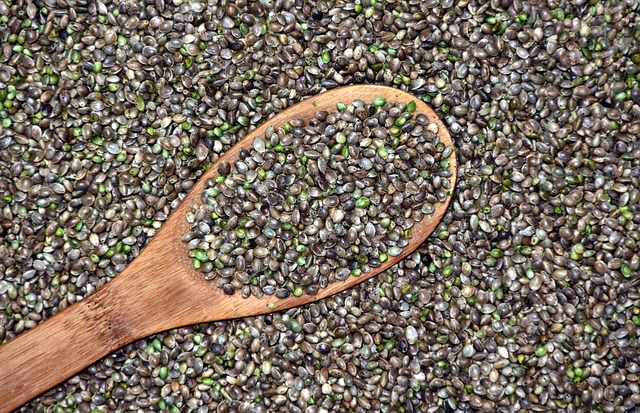
4. Sesame Seeds
Commonly known as tahini, sesame seeds are widely used in Asian cuisine. These seeds not only add to the flavor of your dishes; they are also very healthy because they are rich in lignans. They are considered to be the best dietary source of lignans.
One of the main lignans found in sesame seeds, sesamin, is immensely beneficial for human beings because it helps to keep the gut clean, improve the production of the sex hormone, estrogen and lower one’s risk to serious ailments such as breast cancer & cardiac diseases.
Since they are rich in antioxidants, sesame seeds also help to keep the blood cholesterol levels under check, while also helping you fight against all types of inflammation. A cup of 28 grams of sesame seeds contains 160 calories, about 3 grams of fiber, 5 grams of protein and 6 grams of omega-6 fats. You can get 57%, 34% and 25% of your daily recommended levels of copper, manganese and magnesium, respectively, from this.
Related Reading:
Side-Effects Of Sesame Seeds That You Need To Know
Sesame Oil For Good Metabolism|Benefits & Methods Of Usage
Substitutes For Sesame Oil | Cause For Concern & Limitations
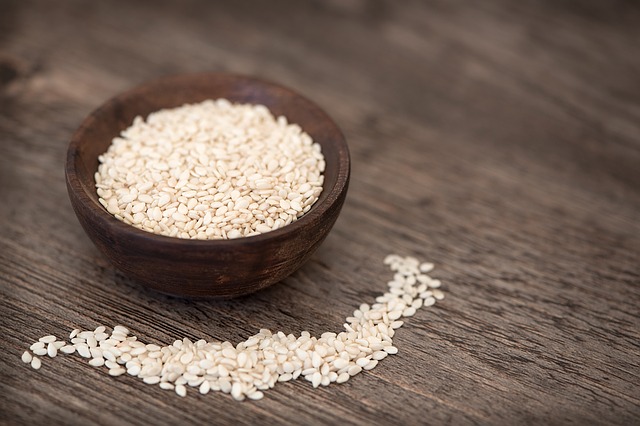
5. Pumpkin Seeds
If you are looking for a dietary source that is rich in phosphorous, pumpkin seeds are a great choice for you. It is easily available and has a nice, crunchy flavor to it. Apart from phosphorous, pumpkin seeds are also good sources of monounsaturated fats, omega-6 fats and a plant compound known as phytosterols, which plays a vital role in reducing blood cholesterol levels.
Studies have proved that pumpkin seeds can reduce your risk to breast cancer, the formation of gall-bladder stones, enlarged prostates, urinary ailments, low blood pressure, and menopause-related ailments.
In a cup containing 28 grams of pumpkin seeds, you will get 151 calories, 2 grams of fiber, 7 grams of protein and 6 grams of omega-6 fats. Apart from this, you can also get 42%, 37% and 33% of your daily recommended levels of manganese, magnesium and phosphorous, respectively.
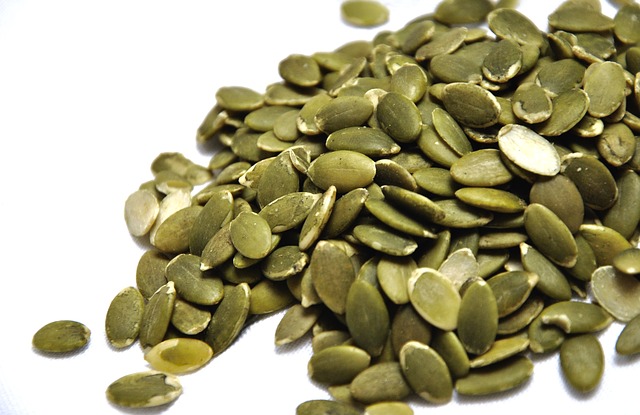
6. Sunflower Seeds
Rich in anti-inflammatory properties, sunflower seeds are packed with nutrients that help you lead a healthy life. Vitamin E, monounsaturated fats and proteins are the main ingredients that are found in sunflower seeds. A cup of 28 grams of sunflower seeds contains 164 calories, 2 grams of fiber, 6 grams of protein and 6 grams of omega-6 fats. It gives you 47%, 27% and 23% of your daily recommended levels of Vitamin E, manganese and magnesium, respectively.
Results have proved that regular consumption of sunflower seeds can help reduce age-related inflammation diseases, control blood cholesterol levels and reduce triglycerides.
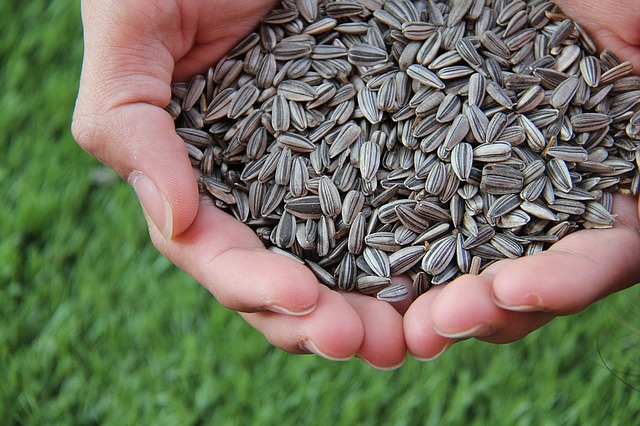
Some points to note
- Sunflower seeds can reduce the good cholesterol levels as well; therefore, it is recommended to consume this in moderation.
- When you are want to consume flaxseeds, always ensure that you don’t buy the unripe ones as they may be toxic for you.
- Flaxseeds are full of fiber; therefore, you need to remain sufficiently hydrated while consuming these seeds to avoid issues such as abdominal strain and indigestion.
References
https://www.healthline.com/nutrition/6-healthiest-seeds#section7



